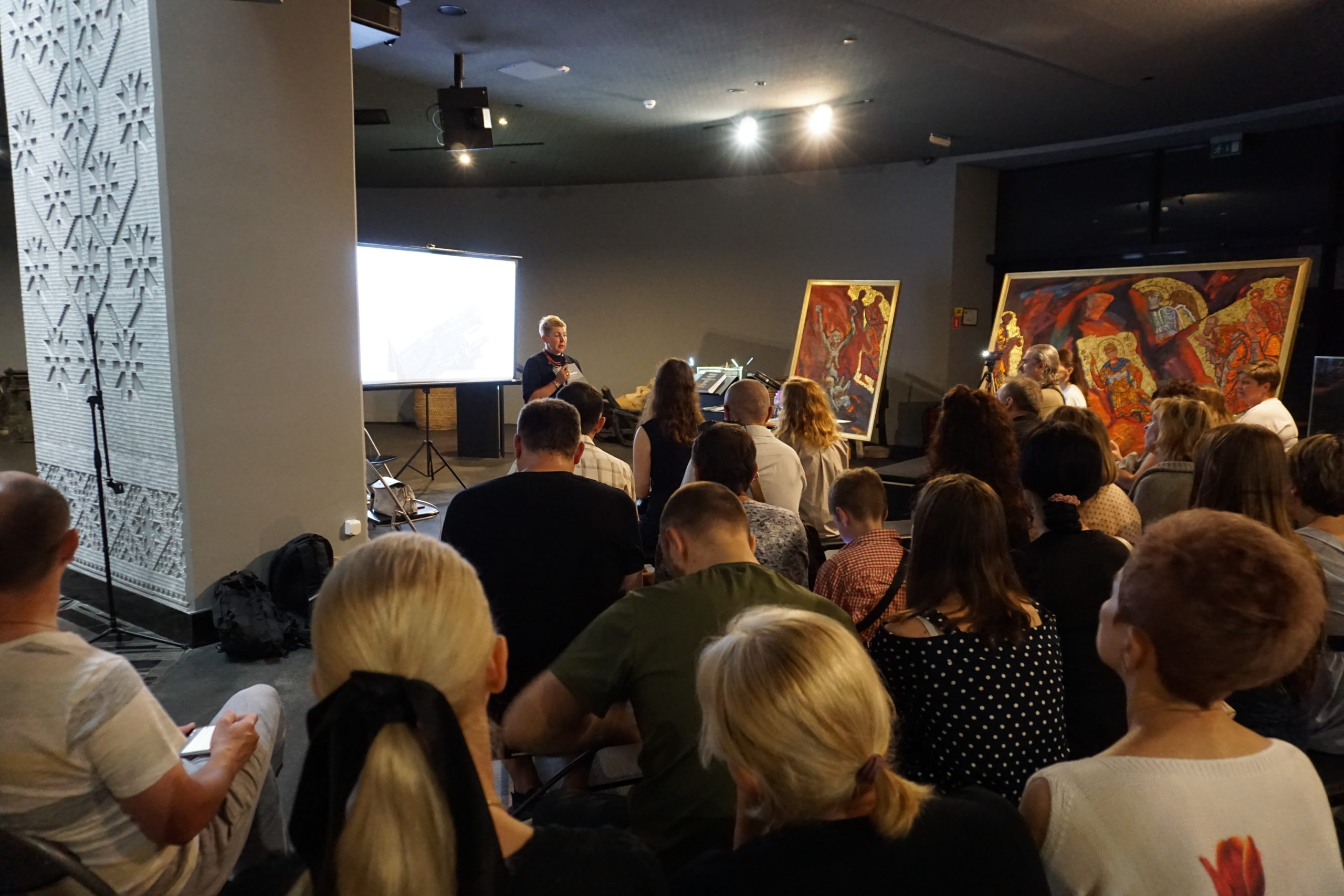The presentation of the book “Mykyta Shapoval. Biography scheme. Biography. Letters”
On Tuesday, July 18, the book “Mykyta Shapoval. Biography scheme. Biography. Letters,” which brings back from oblivion another little-known name of an outstanding Ukrainian, was presented in the Holodomor Museum.
“For a long time, I have heard Mykyta Shapoval’s name in a negative way. Until the moment when we started to contact in the Czech Podebrady with the public organization “Ukrainian Memorial”, which is engaged in organizing the graves of representatives of the Ukrainian emigration, who ended up in Czechoslovakia a hundred years ago. And he heard a completely different, opposite reaction from them, which was caused by Mykyta Shapoval’s name. They talked about him as an outstanding figure who did a lot while in exile,” Angela Savchenko, the editor of the book, says.
Having become interested in this figure and enlisted the support of like-minded people – the “Kryla” CPGA, the NGO “Kyivski Freski” and with the financial support of the “IZOLYATSIA.Platform for Cultural Initiatives.” – work began on a biographical publication that would tell Ukrainians more about this figure. Fortunately, Mykyta Shapoval’s archive is in Ukraine, declassified back in 1990. The creative team was even more fortunate that the memories of Mykyta Shapoval were preserved in this archive, as well as the letters of his relatives, which became the basis for the book mentioned above. So, step by step, the portrait of this extraordinary personality began to emerge – a political and public figure, a member of the government of the Ukrainian People’s Republic, a writer, the publisher of the Ukrainian modern literary magazines “Ukrainska Khata” and “Shliakh”, the founder of Ukrainian sociological science in exile.
Since Mykyta Shapoval was born in the Donetsk region, in the village of Sriblianka, Bakhmut district, Katerynoslav province (now Bakhmut district, Donetsk region), the portrait of the Ukrainian Donbas of the 20s of the last century emerges from the sources he left behind. It still contains references to the Cossacks who colonized and settled this region, the Ukrainian language, Ukrainian traditions and surnames. The history of the Shapoval family is a direct reflection of the events that raged in the Ukrainian East at that time. In its example, we see how the Russification of the region is taking place, how Shapoval’s brothers and nephews become Shapovalovs, how Ukraine is gradually pushed out of the Ukrainian Donbas, and how history is being falsified.
Also, in the letters of relatives, we can see references to the famine of 1921–1923, which became a rehearsal for a greater disaster – the Holodomor genocide of 1932–1933.
“By publishing this book, we wanted to show the Donetsk region as it was seen and felt by Mykyta Shapoval, who was born and raised there and who knew the region well where his identity was formed. After reading the book, you will see a completely different Donetsk region, not as you knew it until now, – Angela Savchenko emphasizes. – At the same time, we wanted to show a person who literally made himself – born in an extremely poor family, Mykyta Shapoval was able to rise from the lowest social level to a doctor of sociology.”
At the same time, this is another story about Ukrainians who lost their Motherland in the whirlwind of the stormy 20th century. Mykyta Shapoval could have worked for the good of Ukraine (and did so even in exile), but instead, he was forced to leave. He thought it would be for a few years, but it turned out to be forever…
